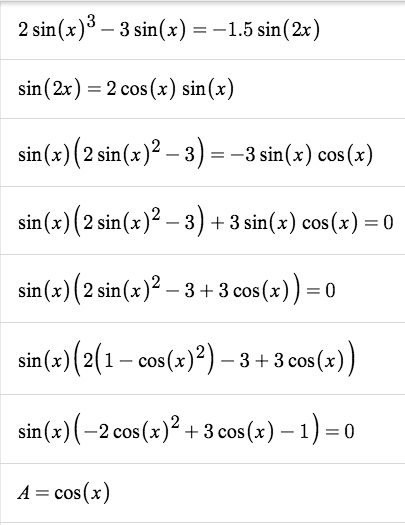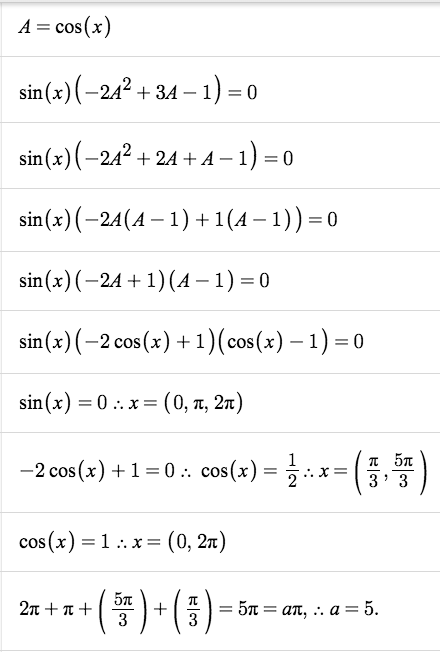Algebra + Trig = fun!
Using the above equation, determine the sum of distinct solutions for in the range . If the solution is in the form , where is an integer, determine the value of .
The answer is 5.
This section requires Javascript.
You are seeing this because something didn't load right. We suggest you, (a) try
refreshing the page, (b) enabling javascript if it is disabled on your browser and,
finally, (c)
loading the
non-javascript version of this page
. We're sorry about the hassle.


2 sin 3 x − 3 sin x 2 sin 3 x − 3 sin x 2 sin 3 x − 3 sin x + 3 sin x cos x sin x ( 2 sin 2 x − 3 + 3 cos x ) sin x ( − 1 − 2 cos 2 x + 3 cos x ) sin x ( 2 cos 2 x − 3 cos x + 1 ) sin x ( cos x − 1 ) ( 2 cos x − 1 ) = − 2 3 sin ( 2 x ) = − 2 6 sin x cos x = 0 = 0 = 0 = 0 = 0 Note that sin ( 2 x ) = 2 sin x cos x Rearranging Since sin 2 x = 1 − cos 2 x Multiply throughout by − 1
⟹ ⎩ ⎪ ⎪ ⎨ ⎪ ⎪ ⎧ sin x = 0 cos x = 1 cos x = 2 1 ⟹ x = 0 , π , 2 π ⟹ 0 , 2 π ⟹ 3 π , 3 5 π
Therefore, the sum of all distinct solutions is 0 + 3 π + π + 3 5 π + 2 π = 5 π ⟹ a = 5 .